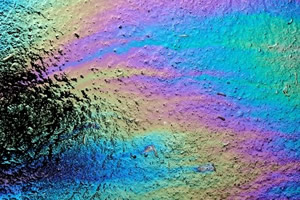 What does Testing for Total Petroleum Hydrocarbon in Your Connecticut Water determine?
What does Testing for Total Petroleum Hydrocarbon in Your Connecticut Water determine?
Underground storage tanks in CT, historically have stored petroleum products such as: gasoline, diesel fuel, and heating oil among others. The removal of damaged and leaking tanks involves analyses of surrounding soil and water to determine what was in the tank and the amount of petroleum product that has escaped into the environment. Most regulatory agencies require a “screen” of the soil or water to give information about the extent of clean up needed
What are total petroleum hydrocarbons (TPH)?
Total petroleum hydrocarbons (TPH) is a term used to describe a large family of several hundred chemical compounds that originally come from crude oil. Crude oil is used to make petroleum products, which can contaminate the environment. Because there are so many different chemicals in crude oil and in other petroleum products, it is not practical to measure each one separately. However, it is useful to measure the total amount of TPH at a site.
TPH is a mixture of chemicals, but they are all made mainly from hydrogen and carbon, called hydrocarbons. Scientists divide TPH into groups of petroleum hydrocarbons that act alike in soil or water. These groups are called petroleum hydrocarbon fractions. Each fraction contains many individual chemicals.
Some chemicals that may be found in TPH are hexane, jet fuels, mineral oils, benzene, toluene, xylenes, naphthalene, and fluorene, as well as other petroleum products and gasoline components. However, it is likely that samples of TPH will contain only some, or a mixture, of these chemicals.
How might I be exposed to total petroleum hydrocarbons (TPH) in CT?
- Breathing air at gasoline stations, using chemicals at home or work, or using certain pesticides.
- Drinking water contaminated with TPH.
- Working in occupations that use petroleum products.
- Living in an area near a spill or leak of petroleum products.
- Touching soil contaminated with TPH.
How can total petroleum hydrocarbons (TPH) affect my health?
Some of the TPH compounds can affect your central nervous system. One compound can cause headaches and dizziness at high levels in the air. Another compound can cause a nerve disorder called “peripheral neuropathy,” consisting of numbness in the feet and legs. Other TPH compounds can cause effects on the blood, immune system, lungs, skin, and eyes.
If you are concerned that your Connecticut drinking water might be affected by TPH call us today.







